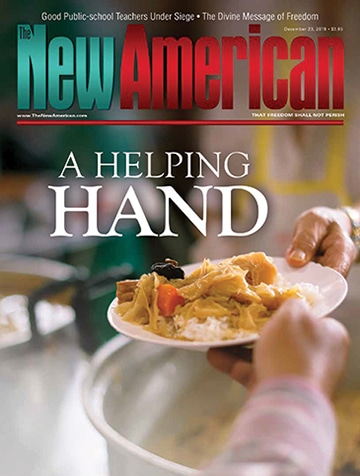Review of “For a New Liberalism”
“Liberalism” used to emphasize the right of an individual to determine what pursuits he would follow and goals he would achieve. For a New LIberalism author Richard Ebeling would like a return to that meaning.
The words liberal and liberalism have lately fallen out of favor among those with left-of-center political views. Although some of them have embraced the label socialist and the term socialism, most still shy away from such language and instead use the expressions progressive and progressivism.
Richard Ebeling wants to rehabilitate the words liberal and liberalism, but in the classical sense. He contends in his introduction to For a New Liberalism that “what has been called ‘liberalism’ for a long time in the United States is a far cry from what liberalism used to mean at an earlier time, and has brought about numerous anti-liberal policies.” He explains the transformation thusly: “In the early decades of the 20th century, liberalism began to change its meaning and intent for a growing number of intellectuals and social and economic reformers. In the process, by the 1930s and 1940s, the premise and content of liberalism had a conception of man, society and government very different from its original ones in the 19th century.” Naturally, “this has created a noticeable confusion in thinking about what liberalism means, what type of social system it represents, and what is the role of government in a liberal society.”
Liberalism, which Ebeling sees as “the basis of a free and prosperous society,” is “founded on the idea of the distinct and unique individual human being.” The individual “owns and governs himself,” “decides on his own ends,” and “selects his own means to pursue his goals, and give meaning, value and purpose to his own life in all its aspects.” The liberal “respects the equal rights of all others, and therefore accepts and tries to live by the moral principle of mutual respect and peaceful association in all dealings with his fellow man.”
JBS Member?
Sign in with your ShopJBS.org account.
 Subscribe Now
Subscribe Now
- 12 Issues Per Year
- Digital Edition Access
- Digital Insider Report
- Exclusive Subscriber Content
- Audio provided for all articles
- Unlimited access to past issues
- Cancel anytime.
- Renews automatically
 Subscribe Now
Subscribe Now
- 12 Issues Per Year
- Print edition delivery (USA)
*Available Outside USA - Digital Edition Access
- Digital Insider Report
- Exclusive Subscriber Content
- Audio provided for all articles
- Unlimited access to past issues
- Cancel anytime.
- Renews automatically


